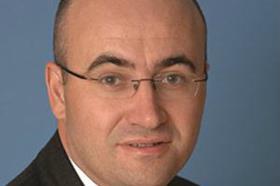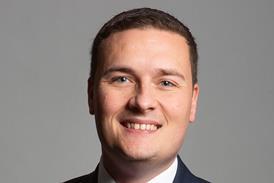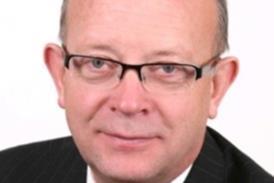- Jon Rouse says uncertainty around capital funds makes it impossible to set “proper” plans and maximise opportunities for private sector investment
- He says the current process is “like driving into fog”
- Tight constraints on capital funding nationally with the budget being cut in real terms under current spending plans
The leader of Greater Manchester’s devolution team has called for more clarity over NHS capital funding, saying the government’s current regime is like “driving into fog”.
Jon Rouse, a former director general at the Department of Health, says uncertainty around capital funds makes it impossible to create “proper” plans and maximise the opportunities for private sector investment.

Capital budgets are used for investment in infrastructure such as buildings and equipment, rather than day to day spending such as wages.
There are tight constraints on capital funding nationally with the budget being cut in real terms under current spending plans. However, the Conservative Party indicated in its election manifesto that more money would be made available in the autumn budget.
Mr Rouse told HSJ that Greater Manchester has drawn up robust digital and estates plans but said: “If you want to put together a proper investment strategy around that which maximises your ability to draw in other sources of finance, you really do need to have some idea of what size of capital pot is going to be coming from public service capital.
“It’s one of our bugbears really. Don’t get me wrong, I think the government and national NHS bodies have been really supportive of us overall and given us a lot of freedom and a lot of scope. But one of the things we really desire is the ability to have a long term capital plan and capital framework in partnership with them rather than just bidding into a process on a bid at a time.
“We’re expecting a further announcement in the autumn budget but we haven’t got a clue about the size or duration, or principles and rules.”
He described the current process as “like driving into fog”, and said his message was for “the Treasury as much as anyone else”. He said national NHS bodies “do the best they can with us under the constraints under which they are operating in terms of the Treasury’s distribution of resources”.
In July, Greater Manchester was allocated up to £50m of new capital funding that was announced in the spring, but this will be needed to pay for projects that were agreed more than two years ago and have been delayed by the national funding constraints.
NHS Improvement chief executive Jim Mackey has publicly commented several times about the need for capital funding rules to be relaxed, but the regulator did not wish to comment directly for this article. The Treasury also did not wish to comment.
In December 2016, Mr Rouse was one of the first prominent NHS figures to call for urgent investment to prop up social care services. In March, the government announced an extra £1bn for 2016-17.
Mr Rouse said this money had “deferred” the risk of social care services not being maintained to the levels required by law, but the risk had not been “mitigated”. He added: “It’s genuinely helpful in keeping the wolf from the door, but the wolf is still prowling round the house.”
Some trusts in Greater Manchester received large amounts of sustainability and transformation funding in 2016-17, which can now be spent on capital projects.
Mr Rouse said he was looking to have conversations with national leaders and other areas about having an “STP level conversation” about the best use of this money, while ensuring the region does not miss out on further incentive payments.
Central Manchester University Hospitals Foundation Trust, which received £44m of STF in 2016-17 – more than double its original allocation – said this cash had been “promptly and directly reinvested in a range of additional high priority projects in the trust’s capital programme for 2017-18”.
It did not respond when asked whether it would support decisions around spending this money being taken at an STP level.
The HSJ Strategic Estates Forum is taking place on 20 March at BMA House in London. This is a high-level strategic forum that brings together estates directors, STP estates leads and trust board leaders responsible for the estates function who are developing strategic plans for their organisations and local health economies. The focus of the forum is on issues such as the delivery vehicle for the Naylor Report, the creation of Project Phoenix, advice on establishing SEPs (Strategic Estates Partnerships) and assessing progress of STP estates plans. Sir Robert Naylor, National Adviser, NHS Property and Estates; David Williams, Director General of Finance, Department of Health and Simon Corben, Head of Profession, NHS Improvement are all confirmed as keynote speakers for the event. Register your interest for this free-to-attend event on our website: https://strategicestates.hsj.




























5 Readers' comments